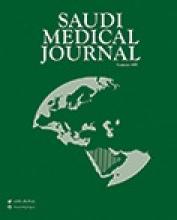OCTOBER 21, 2019 - A new study found a link between reduced exercise capacity and neurocognitive problems in survivors of acute lymphoblastic leukemia (ALL), the most common childhood cancer. The findings are published early online in CANCER, a peer-reviewed journal of the American Cancer Society.
Survivors of childhood ALL are at increased risk of experiencing neurocognitive deficits and reduced exercise capacity due to their disease and its treatment. A team led by Kirsten Ness, PhD, and Nicholas Phillips, MD, PhD, of St. Jude Children’s Research Hospital in Memphis, Tennessee, looked for an association between these outcomes by examining exercise and neuropsychological test results, as well as questionnaire answers, from 341 adult survivors of childhood ALL and 288 healthy controls. The researchers measured how much physical activity survivors could tolerate and how that related to their ability to think, learn, memorize, read, and do math.
Compared with controls, survivors had worse cardiovascular fitness and poorer performance on neuropsychological tests, including those related to attention, memory, and academic skills. After adjusting for age, sex, radiation and chemotherapy treatments, smoking status, and physical activity, the authors found that increases in exercise capacity were associated with better performance on various neuropsychological tests among survivors.
Previous studies in children and older adults without cancer suggest that physical fitness can provide benefits to brain function and academic performance. Results from the current study indicate that such benefits might also be experienced by children with cancer who need potentially neurotoxic anticancer treatments.
“Our research suggests that a minor improvement in exercise tolerance, such as going from sitting on the couch and watching TV to walking around the block for 30 minutes a day, can have a significant impact on survivors’ intellectual health,” said Dr. Phillips. “We know that memory and thinking skills decline as we age. Any improvement in exercise tolerance, even in adulthood, may have an impact on a survivor’s ability to think, learn, and memorize,” added Dr. Ness.
A randomized clinical trial is needed to test whether interventions that improve exercise capacity might be helpful.
This work was supported by the National Institutes of Health and the American Lebanese Syrian Associated Charities.
Full citation: “Physical fitness and neurocognitve outcomes in adult survivors of childhood acute lymphoblastic leukemia: A report from the St. Jude Lifetime Cohort.” Nicholas S. Phillips, Carrie R. Howell, Jennifer Q. Lanctot, Robyn E. Partin, Ching- Hon Pui, Melissa M. Hudson, Leslie L. Robison, Kevin R. Krull, and Kirsten K. Ness. CANCER; Published Online: October 21, 2019 (DOI: 10.1002/cncr.32510).
Copyright © 2019 The Cochrane Collaboration. Published by John Wiley & Sons, Ltd., reproduced with permission.
- Copyright: © Saudi Medical Journal
This is an open-access article distributed under the terms of the Creative Commons Attribution-Noncommercial-Share Alike 3.0 Unported, which permits unrestricted use, distribution, and reproduction in any medium, provided the original work is properly cited.






